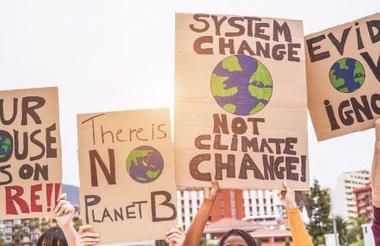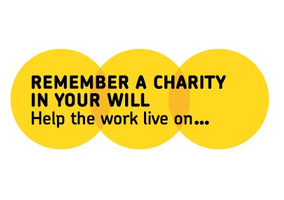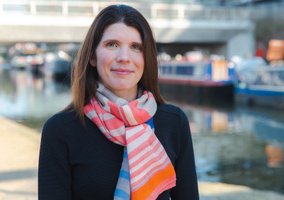At ACEVO, we wanted to run our first ever Climate Week this week to engage not only our members but civil society leaders across the sector as a whole.
We want to encourage people and organisations to take action, whether or not they are directly involved in climate and the environment.
We know that many civil society leaders have started to do some climate action work within their organisations, but there are some that are yet to begin this journey. We hope the content and events we are hosting throughout Climate Week gives them the confidence to begin.
Why is it relevant?
So why should charities consider taking action on climate change even if they feel it is not directly relevant to the charitable mission?
Climate change has far-reaching impacts that intersect with nearly every aspect of society. It exacerbates issues such as poverty, health, access to clean water and food security, to name a few. Furthermore, the most vulnerable populations are often the most affected so by addressing climate change and not letting it go unchecked, you can better protect these groups and reduce the severity of future problems.
Even if the climate crisis doesn’t seem immediately relevant to your cause, addressing it can strengthen your mission, protect the communities you seek to serve and ensure global security overall. It’s not just about environmental preservation; it’s about safeguarding human health, economic stability, and social equity. The sooner we act, the more effectively we can mitigate these risks and build a sustainable future for all.
We would like to gather thoughts and reflections from leaders about embedding climate action into their organisation’s work. This can be submitted through a short survey.
Charities already taking action
ACEVO showcases examples of good practice to inspire leaders to act and to offer ideas of how one can approach. There is a wide array of charities that are already doing fantastic things on climate action.
For example, the Felix Project, an organisation that redistributes over 12,500 tonnes of surplus food per year by giving charities, schools and other community organisations across London food to help prepare meals and snacks, or make it available for their local communities, measured their corporate carbon footprint for the first time in 2021 and has now repeated the process on a yearly basis.
They also have a sustainability working group that brings together ideas about how they can improve their activities across the organisation, with the environment in mind.
The Centre for African Entrepreneurship (CAE) is another organisation that has started its climate journey. Their climate action is inspired by the fact that people from ethnically diverse backgrounds are one of the most disengaged groups and this is primarily because the language used to discuss these issues is not accessible or relatable enough.
The action they’ve taken so far has been successful in elevating the voices of those less represented, on a community level such as students in schools and on a more political level at tables where climate-related action is discussed.
Need to keep pace with other sectors
There are many hundreds of other charities that are doing good work on climate action. However, in comparison to other sectors, civil society is not moving as quickly when it comes to responding to a genuine and significant threat.
We need to act now and show ambition and boldness to ensure our sector contributes actively towards the global transition to net zero emissions.
In terms of what else charities should be doing, our CEO Jane Ide had some tips for civil society leaders in a piece published yesterday, including:
- Encourage open and honest conversations about climate change amongst trustees, staff, volunteers and your beneficiaries.
- Integrate climate into your mission and strategy.
- Understand your environmental and climate impacts.
- Educate and engage staff and stakeholders.
- Consider your organisational risks.
- Collaborate and share knowledge.
- Advocate for policy change.
We hope ACEVO's Climate Week will inspire and empower leaders across civil society to integrate climate action into their work.
Tomorrow, Jane will be live on LinkedIn with Areeba Hamid (joint executive director at Greenpeace UK).
Then on Thursday, we will publish a podcast episode in which Jools Townsend (CEO at Community Rail Network) talks to Jabeer Butt (CEO at Race Equality Foundation) and Kamran Mallick (CEO at Disability Rights UK) about the intersection of climate and social justice.
Let's come together to take meaningful steps towards addressing the climate crisis and subsequently build a sustainable, equitable future for all.
Related Articles












